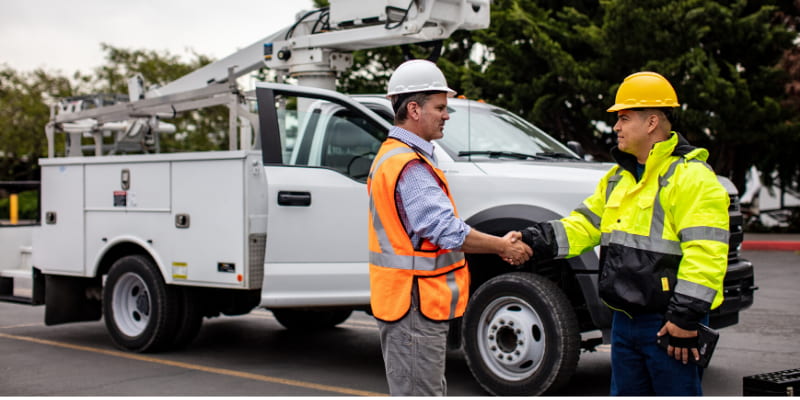Provide Better Customer Service with Video Telematics Technology for Field Services

Despite best efforts, sometimes things go wrong: a package is delivered late, a technician misses an appointment, or a company vehicle is involved in a collision. Under these circumstances, the company must respond quickly to manage the situation and resolve a customer’s complaint. One of the best ways to accomplish this is by using technology that can provide real-time updates on vehicles, products, and personnel.
Customer service counts
Studies consistently show that the level of customer service a company provides can have a direct impact on the business:
- According to the Harvard Business Review, customers value a company more when they receive a response faster than they expect.
- The White House Office of Consumer Affairs has reported that “If [customers] feel you acted quickly and to their satisfaction, up to 96% will do business with you again, and they will probably refer other people to you.”
- TARP Worldwide, which specializes in customer service and quality, found that “68% of customer defection takes place because customers feel poorly treated.”
- According to a survey by Lee Resources International, “91% of unhappy customers will not willingly do business with you again.” Yet, “95% of complaining customers will do business with you again if you resolve the complaint instantly.”
Those operating in the field services industry have more pressure than most—it’s a tightrope act to manage customer communications as technicians deploy in all different directions. How can companies keep customers happy and fix issues fast, while providing technicians with the best resources to do their jobs?
Customer service tools that support field service companies
There are three vehicle technologies that make it possible to address the typical customer service problems faced in field service management.
1. GPS Fleet Tracking - Package or personnel delayed? You can use GPS fleet tracking to see where your vehicle is located, contact the driver, and update the customer on when the parcel will be delivered—all in real time.
2. Advanced Video - Video footage from a fleet dash cam can be useful in situations such as providing proof of service. Field managers and customers can see exactly when the delivery was made, who accepted it, and any other conditions of delivery. Also, if there is a complaint about a driver being involved in or potentially causing a collision, video evidence can show exactly what happened and why.
Video recorders such as the Lytx DriveCam® camera incorporate real-time alerts, microphones, side and backup views, and sensor data to help companies understand what happened in the moments before a collision occurred.
3. Machine Vision and Artificial Intelligence - Companies can identify the risk elements involved in a collision faster and more accurately than ever before with access to advanced analytics from machine vision and AI technology. These sophisticated insights help field service companies avoid incidents before they occur, improving safety and reducing any related customer service issues.
Having access to these technologies helps field services companies have the right answers on hand at a moment’s notice. Customers will know that your company is on top of all elements of its product and service-providing functions.
Turn complaints into kudos
Employing fleet management technology that not only improves productivity and safety, but also makes it possible to provide excellent and prompt customer service is becoming essential for businesses.
Customer satisfaction (or dissatisfaction) affects brand loyalty and your company’s reputation. The years of effort you put into building a good name could crumble quickly after a few negative Yelp reviews or declining NPS scores. Technology, like video telematics, can provide you with real-time information needed to deliver an accurate and timely response to customers.
To see for yourself how Lytx’s fleet management solutions can be used to help keep your customers happy, schedule a demo today.
